- Nigeria maintains the lowest fuel pump prices in comparison to neighbouring African countries, despite the removal of fuel subsidy.
- Fuel prices have increased nationwide after the removal of the subsidy, ranging from N488 to N570 per litre in different Nigerian states.
- Data from the Major Oil Marketers Association of Nigeria (MOMAN) reveals varying fuel pump prices in 12 African countries, with Nigeria offering the most affordable prices.
Data from the Major Oil Marketers Association of Nigeria (MOMAN) shows that Nigeria maintains the lowest fuel pump prices compared to neighbouring African countries.
This information comes despite the recent removal of the fuel subsidy regime since President Bola Ahmed Tinubu assumed office in May 2023.
Following the elimination of the fuel subsidy, fuel prices have increased nationwide, with prices ranging from N488 to N570 per litre across different states in Nigeria.
Despite these price hikes, the latest data as of June 20, based on an exchange rate of $1 to N755, indicates that Nigeria still offers the most affordable fuel pump prices when compared to neighbouring countries.
MOMAN data shows varying fuel pump prices across 12 African countries as follows:
- Nigeria – N488 – N570 per liter across states
- Cameroon – N906 per liter
- Benin Republic – N807.85 per liter
- Serra Leone – N822.95 per liter
- Togo – N868.25 per liter
- Burkina Faso – N1057 per liter
- Ivory Coast – N1011.70 per litre
- Ghana – N890.90 per liter
- Guinea – N1049.45 per liter
- Mali – N1079.65 per liter
- Senegal – N1230.65 per liter
- Liberia – N762.55 per liter
Nigerian fuel is still at risk of being smuggled.
A review of the above-listed fuel pump prices in African countries shows Nigeria as having the least prices and energy analyst, Dan D. Kunle tells Nairametrics that these prices could be an incentive for fuel smugglers to still want to continue their trade despite the increase in Nigeria’s fuel pump prices.
According to him, the government will need to ensure that fuel smuggling is completely eradicated.
Recall that earlier this month, Mele Kyari, the Group Chief Executive Officer of the Nigerian National Petroleum Company Limited said that Nigeria’s fuel subsidy removal and the upward fuel price adjustment will reduce fuel smuggling to neighbouring African countries.
At the time, he provided context using the situation where Nigeria was selling fuel at N195 per litre meanwhile other neighbouring countries were selling at over N500 per litre.
In this context, some stakeholders took advantage of the system and engaged in fuel smuggling.
He reasoned that the increase in Nigeria’s fuel pump prices will drastically reduce fuel smuggling to other African countries.
What you should know
In January 2023, the Nigerian Midstream and Downstream Petroleum Regulatory Authority (NMDPRA) blamed the price arbitrage between Nigeria and West African countries on the Russian invasion of Ukraine.
According to the Authority, the price arbitrage between Nigeria and neighbouring countries has continued to grow due to inflation and the regional impact of the Russia-Ukraine conflict on the global energy value chain including international freight rates and coastal vessels charter rates.

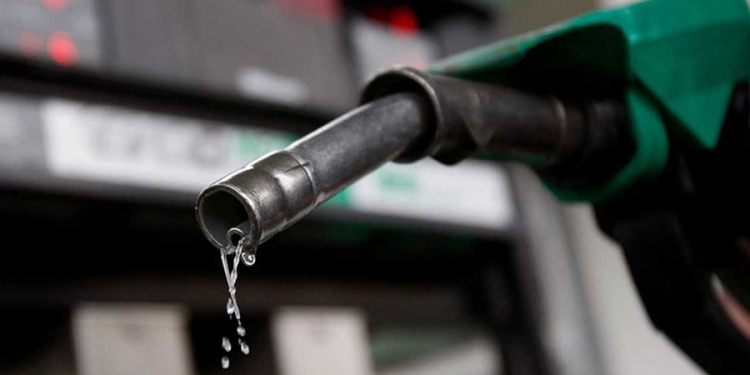






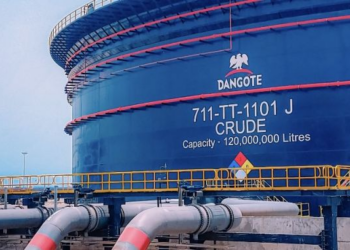
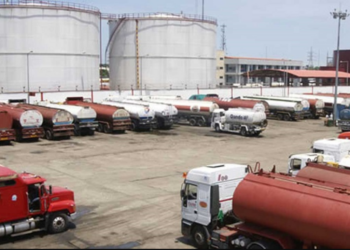

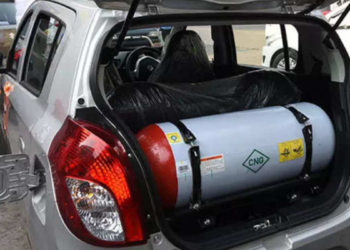

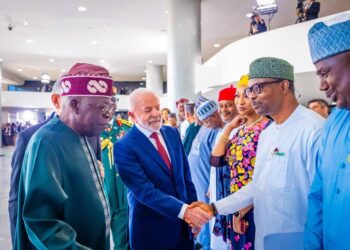












how come the standard of living is low. food, housing etc is very affordable in these mention countries. but in Nigeria these basic things are expensive? Reporter be more detailed in your reports and show the full picture of things. this your report is one-sided and should be categorized as false, unprofessional and shabby
it’s really shameful to compare Nigeria that produces an average of 1.5million barrel of crude oil a day to these non producing countries.
I pray the current state of Nigeria happens to you and your family since it a thing of joy for you
@Kkp, how about comparing Nigeria with the world’s biggest exporter of crude, Saudi Arabia, with production capacity of 13 million barrels per day (which is about ten times the daily output of Nigeria), with a population of only about 30 million citizens (that is, about 15% of Nigeria’s population), and which refines its own products locally – but whose pump prices are HIGHER than Nigeria’s pump prices (at least until the recent lifting of subsidies in Nigeria)?
I think it’s time Nigerians wean themselves of this mass DELUSION that Nigeria is a “rich” (or even an “oil rich”) nation. Nigeria produces between 1m and 1.3m barrels per day. Even if Nigeria produced 1.5 million bbl/d, and decide to share EVERY kobo it makes from oil sales among its over 200million citizens, it will amount to LESS THAN 20CENTS PER NIGERIAN! By contrast, a country like Kuwait produces about 3m barrels per day for 1 million citizens.
Even a nation like United Arab Emirates, which produces 3.7 million barrels of oil daily (that is, about THREE times Nigeria’s production) for a population of less than 10 million residents (of which only about 1.1 million are citizens or Emiratis), which is LESS THAN 5% (and less than half-percent, respectively) of Nigeria’s over 200 million population, and which refines its fuel locally, still has HIGHER fuel prices than Nigeria’s pump prices!
Accordingly, some of you Nigerians keep missing the point. Basic Economics is NOT different for Nigeria and Nigerians. You cannot keep selling products way BELOW the cost of production (and transportation) and expect financial sustainability or to attract much-needed investment (and thus the sort of competitive environment that might work to moderate pricing) into the sub sector. Even the roadside Buka or Bole seller is well aware of this basic economic reality.
Nigeria is member of OPEC, when you are comparing use OPEC not non oil producing countries. Shameless beings all 4 refineries not working, you produce and export crude but import refined oil, how many OPEC countries are doing that. The oil is gift from God to Nigerians to ease life but bad greedy people don’t want the masses to enjoy the gift.
@Ayinde, please see my response to Kkp’s comment above.
Most (if not all) other OPEC nations, including Saudi Arabia that produces about 10x the oil that Nigeria does, with the equivalent of about 15% of Nigeria’s population, has HIGHER pump prices than Nigeria. Basic Economics does not make an exception for Nigeria.
What about the minimum wage, number of hours of power supply and quality of road infrastructure in those countries as compared to Nigeria. Don’t just compare pump price of petrol
@Real, most (if not all) of those nations are POORER than Nigeria.